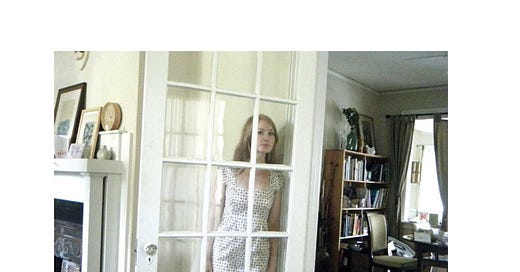“Feed your brain. Take care of it. Let it do things in its own way.” - Carmen Maria Machado
Creative Nourishment is an exploration of the art that I’m feeding my brain, the work that causes me to think deeply about experience and art and storytelling and what it means to embark on the life of a writer. Through essays and reviews, I look at how the work of other creatives is informing the artist I hope to become.
TW: Mental health, suicide, abuse
I’m not brave enough yet to write about the more painful aspects of my life.
It's something I’ve thought a lot about. There are relationships I’ve experienced that have formed some of the worst parts of me. There are periods of my life where I have behaved so poorly that I cannot bear to look back long enough to understand why. There are people that I love dearly and that I believe are fundamentally good that have hurt me.
I am in constant awe of how writers find the bravery to share these darker aspects of themselves. Writers like Blake Butler, who recently published his memoir Molly, which details his wife’s suicide and the subsequent uncovering of her deceit.
It might be admiration. It might be voyeurism. It might be a fundamental fascination with the human experience. I’m sure it’s all of these things. But I’m so drawn to stories like Blake’s, the way humans love and hurt one another and how the collapsing of a life can rebuild into something not beautiful, but enduring.
Molly opens with the force of the air pressure in an airplane cockpit dropping in an instant. It’s a masterclass in pacing.
Butler and his wife, poet Molly Brodak are each writing in their home. They work int heir separate spaces, Blake at a desk and Molly lying in bed. They wandered in and out of each other’s days. A passing hug from Molly in the hallway. A glance toward the window as Blake held their favorite chicken up to say hi, cheer her up as she listlessly laid in bed. The peaceful slow Sundays we all imagine with our long time lover, the calm of being apart yet right there with one another.
Blake leaves for a daily run and returns to a suicide note from Molly taped to the front door. His day moves from slow and easy to a frenetic energy of terror and anguish the second he sees the envelope. He is suddenly sprinting to the park where she wrote she was going and we are sprinting right along side him, out of breath and confused and scared. Whipping through the trees, praying with detached hope that we can still find and save our dear wife Molly.
This is the first and only time I felt unequivocally and uncomplicatedly “with” Butler.
Butler wrote this memoir as a restorative act. His and Molly’s relationship was a tumultuous one, filled with grief, mental health struggles, misunderstanding, and what he’d come to understand as abuse.
Keep reading with a 7-day free trial
Subscribe to The Midwest Creative to keep reading this post and get 7 days of free access to the full post archives.





